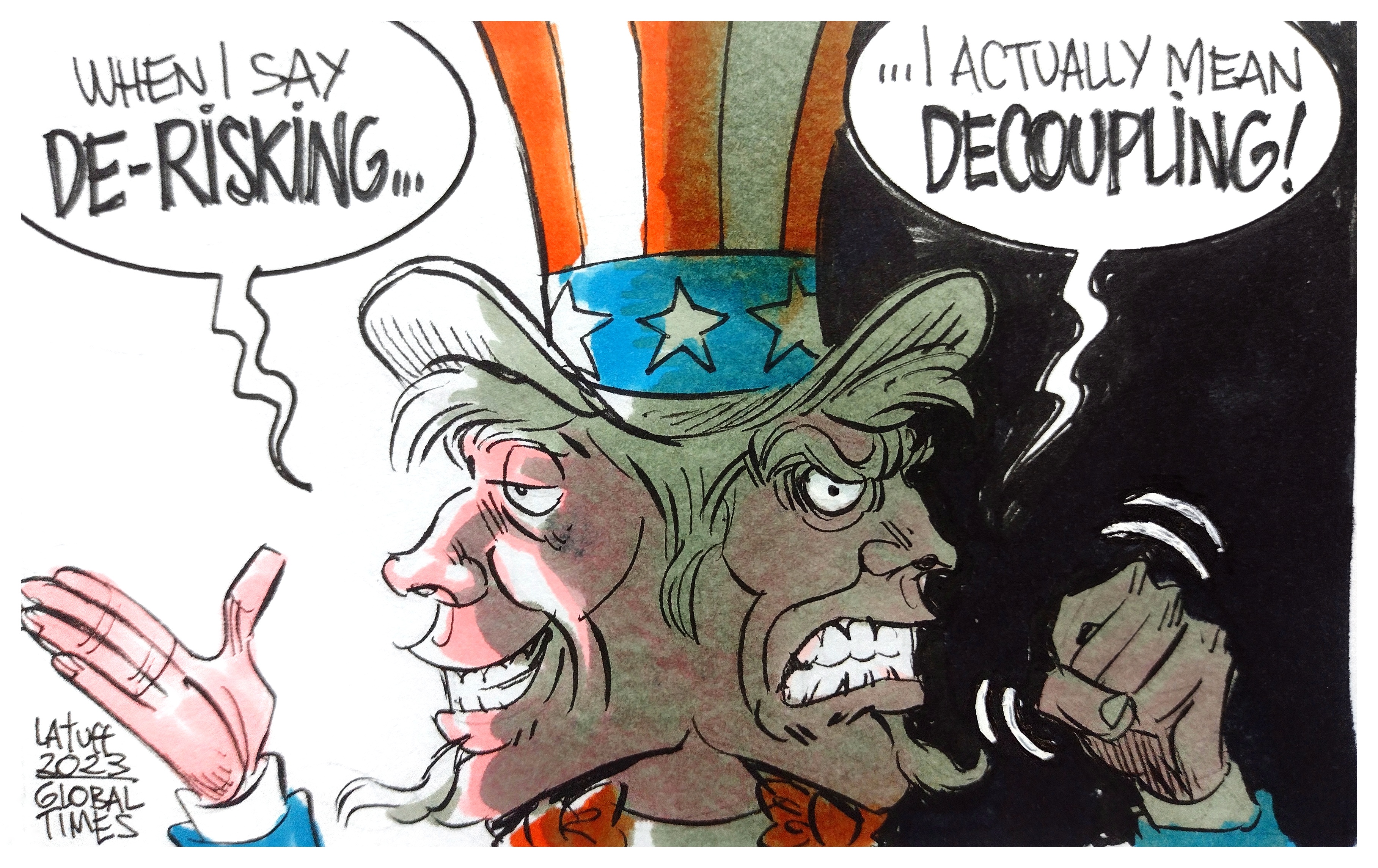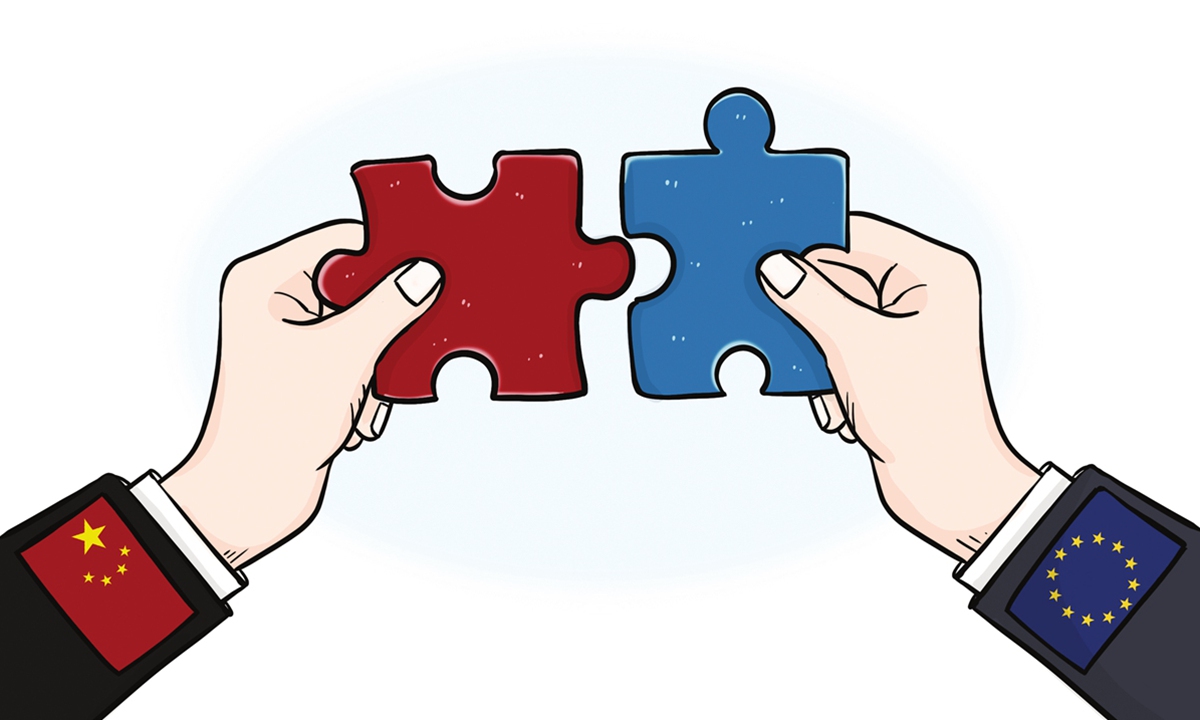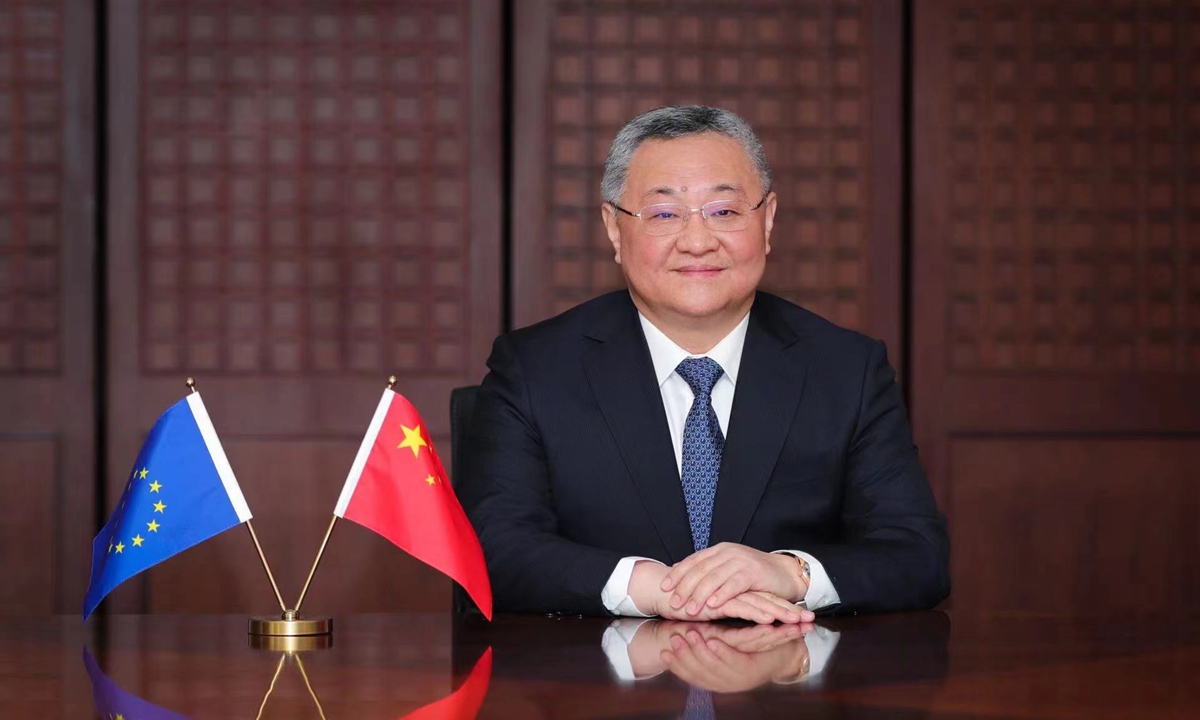Western politicians' 'de-risking' approach toward China is increasingly being proven detrimental

Is the US' de-risking just a fancy disguise for decoupling? Cartoon: Carlos Latuff
As more and more evidence suggests that the Western politicians' push for "de-risking" toward China is creating risks to their own economy and the global economy, there are rising voices in the West that call the sugar-coated and vague term as deceptive and misleading, and Western policymakers need to face up to the harm they are causing.
China sent just 45 percent of its exports to the developed economies including the EU and the US in November, figures from data provider CEIC show. That was the lowest in over a decade and down from about 54 percent as recently as early 2022, The Wall Street Journal (WSJ) reported on Wednesday.
The decline in trade between China and Western countries in November reveals that the reality of "de-risking" is concerning. "De-risking" measures by Western countries, such as establishing supply chains in "friendly" countries or imposing tariffs, are creating increasingly complex global supply chains, which are generating new risks that decision-makers in Western countries may not fully recognize, WSJ said.
While the term "decoupling" has quite clear meaning, "de-risking" is open to many interpretations. However, it's no more secret that the US-led "de-risking" is actually a disguised "decoupling" from China. Their actual "decoupling" practices under the guise have caused severe impacts on global economy and industrial chain cooperation.
As early as last October, which is only a couple of months after the word "de-risking" was brought up by Western politicians, the IMF website published a blog post warning that the negative impact of "de-risking" strategies by major economies would be felt beyond China. US and other Western countries' reshoring, near-shoring or friend-shoring can result in a significant drag on global growth.
It is evident that the practice of "de-risking" not only violates the principles of free trade but also undermines the foundation of international cooperation and mutual benefit. As the world's second-largest economy, China is also the top trading partner of over 120 countries and regions around the world. The artificial "decoupling" from China's economy by Western countries, driven by geopolitical calculations, will undoubtedly have far-reaching disruption on the global supply chain and market.
As the only country in the world that has all industrial categories in the UN industrial classification, China's "world factory" status remains unshakable. China's core position in the global supply chain is naturally formed under the conditions of economic globalization, not as a result of political intervention. However, Western countries, driven by ideological bias, attempt to disrupt the global supply chain layout through political means. Therefore, the biggest risk faced by the global supply chain is the politicization.
"De-risking" behavior not only increases trade barriers but also triggers economic instability and uncertainty. China's economic growth plays a crucial role in the stability and prosperity of the global economy, and Western countries' "decoupling" actions will weaken this positive impact. Furthermore, this approach will lead to turbulence in global investment and market confidence, further exacerbating global economic uncertainty.
IMF First Managing Deputy Director Gita Gopinath said in October that if the global economy were to fragment, losses are estimated to be about 2.5 percent and could reach as high as 7 percent of GDP.
For a long period of time, China has contributed over 30 percent to the global economic growth. This fully demonstrates that China is an opportunity for world development rather than a "risk." The so-called de-risking is nothing more than the abuse of the concept of national security, which disrupts normal market order through political manipulation. In order to push the world economy to quickly emerge from the gloom and ensure the security and stability of the global supply chains, de-politicization of economic and trade issues is undoubtedly the most urgent task.
Western policymakers should heed the calls of Western media and scholars, recognize the dangers of "decoupling" and protectionist practices under the guise of "de-risking." What the US and Europe need to do is not "revise" their statements on China's policies, but to effectively stop politicizing economic and trade issues. Maintaining a cooperative and mutually beneficial relationship with China is crucial for the stability and development of the global economy and their own economies.
In fact, the reason why the US and Europe chose the relatively vague term "de-risking" is also due to their different attitudes toward economic and trade cooperation with China. The mainstream view in the Europe emphasizes that "de-risking" is different from "decoupling" and does not mean establishing a supply chain that excludes China. However, the US chose "de-risking" because compared to "decoupling," this term is more neutral and easier for the world to accept. However, the US will not change its strategy of "decoupling" from China in the high-tech field, nor will it give up its established policy of containing China.
The international community should also unite and strengthen its opposition to the harmful practice of "de-risking" in order to uphold the principles of free trade and openness that underpin the international economic order. Upholding the international economic order of free trade and openness is essential for promoting global economic growth in the face of multiple challenges.
The author is a reporter with the Global Times. bizopinion@globaltimes.com.cn


